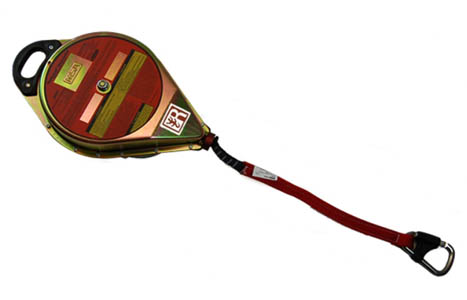
A Redpoint descender
Climbing wall owners and operators of climbing towers are being warned to stop using a belay device.
The Redpoint and Auto-Belay descenders allow a controlled lower without a belayer operating the rope from the ground. But two climbers have been injured recently when the Redpoint device allowed a rapid descent.
Colin Boothroyd, managing director of Entre-Prises UK, importers of the MSA-made devices, issued the following statement: “[We] apologise for the concern and possible consequences that the issuing of this Stop Use Notice will have generated. We can assure you that we will keep you abreast of any developments over this issue as they arise.”
One of the incidents occurred in Asia and the other in Australia.
Entre-Prises UK said initial investigations have not revealed any fault with the units in question.
MSA said: “Our preliminary investigation indicates an issue with the one-way bearings provided by our supplier, which may prevent the brakes from engaging during descent. Due to the nature of this condition, the users were not able to detect the problem before the rapid descents occurred.”
The stop notice applies to all Redpoint descenders, regardless of the manufacture date, and to Auto-Belay descenders manufactured or last serviced on or after June 30, 2000.
MSA has suspended supply of the units. It expects to issue a further announcement before 26 October.
The Redpoint descender is typically installed overhead in indoor climbing gyms, on home climbing walls, on portable climbing walls, or on indoor and outdoor challenge courses and climbing towers. Climbers can tackle routes, using the device, without the need for a separate belayer. In the event of a fall, the climber should be lowered automatically safely to the ground.
karol
26 October 2009what type of bearing failed
Bob
26 October 2009I'm sorry, we don't know Karol. We're journalists and don't have the technical expertise to give a meaningful answer.
All we know is in the company statements.
There is a little more information on the US Consumer Product Safety Commission's website, along with a link to MSA, the company that makes the devices.
Hope this helps.
Bob Smith
Editor